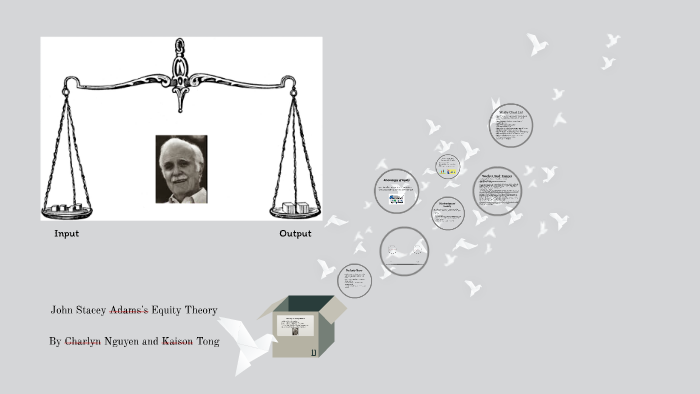

Individual’s outcomes / Individual’s own inputs = Relational partner’s outcomes / Relational partner’s inputs If the relationship is equitable, then both should be happy and satisfied at the end of the day. In a business setting, both the employer and the employee wants to be sure that his action is rewarded, the employee with pay and praise and employer with profit and productivity.


Understanding equity theoryĮquity theory is all about striking the right kind of balance between the input and output of an employee in the workplace because such a scenario will lead to a productive relationship with the management. With equity in place, individuals have equal chances of opportunities, and this leads to a beneficial work environment for both the employees and employers. If equity theory is implemented, then there is transparency in cause and effect, and every person is aware of the rewards and consequences. He seeks to balance the amount of effort he puts in with the compensation he receives for it. In an organization, it is about the work compensation of an employee and his attempts in minimizing supposed unfairness.

What is Equity Theory?Įquity theory refers to the fact that human motivation, to a great extent, depends on what he considers fair and is correlated with his perception of justice practiced by the management. It the ratio is not equal, then emotional responses will occur that will result in the restoration of equity by itself.Īs per the equity theory, human beings derive motivation and satisfaction in a job by comparing their inputs and outputs with other people in either the same or some other firm. What can you do to stop inequity at work?Įquity theory is a concept where people want the ratio of their outcomes to be nearly equivalent to the ratio of a referent person or a group.The belief in equity theory is that people value fair treatment which causes them to be motivated to keep the fairness maintained within the relationships of their co-workers and the organization. John Stacey Adams' equity theory helps explain why pay and conditions alone do not determine motivation. The theory assumes that people's motivation in an organization is based on the desire to be treated equally and fairly.Īlso to know is, how does equity theory affect motivation? Employees who feel that they are receiving inequitable treatment will be emotionally motivated to gain equity.Ĭorrespondingly, what is the equity theory of motivation?Įquity theory is based in the idea that individuals are motivated by fairness, and if they identify inequities in the input or output ratios of themselves and their referent group, they will seek to adjust their input to reach their perceived equity.Īlso, what is equity theory of motivation PDF? The Equity Theory of Motivation deals with the way people compare the value of themselves to others in similar work situations based on their inputs and outputs. Equity theory shows that inequities (perceived or real) harm employee motivation. Why Adam's Equity Theory is Important to the Workplace.


 0 kommentar(er)
0 kommentar(er)
